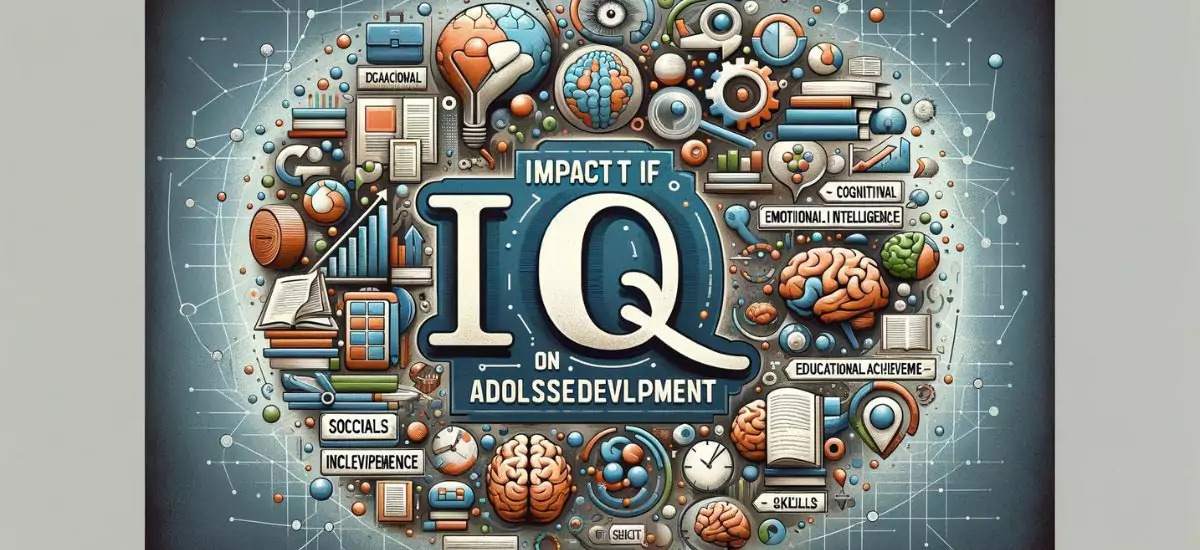The average IQ for a 13-year-old ranges between 99-120, with the norm set at 100. This figure is consistent across age groups, thanks to the age normalization process in IQ testing. It’s crucial to understand that this number is influenced by a blend of genetic, environmental, and educational factors.
Recognizing the average IQ helps appreciate the diversity in cognitive development among adolescents, emphasizing that intelligence is multifaceted and shaped by various elements in a young person’s life.
Average IQ For A 13-Year-Old

A. Statistical average IQ score for 13-year-olds
The average IQ for 13 year olds is range between 99-120. The average IQ score for 13-year-olds is set at 100, maintaining consistency across age groups due to age normalization in IQ tests.
B. Factors influencing average IQ scores in adolescents
- Genetic factors
- Heredity is a significant contributor to IQ, with multiple genes affecting intelligence.
- Environmental factors
- A child’s environment, including nutrition, exposure to toxins, and emotional support, significantly impacts IQ.
- Educational influences
- Quality and access to education are crucial, enhancing cognitive skills like problem-solving and critical thinking.
These factors underscore the complex interplay between genetics, environment, and education in determining a 13-year-old’s IQ score.
Interpretation Of IQ Scores
A. Understanding the variability in IQ scores
IQ scores exhibit variability due to factors like test conditions, emotional state, and health. This variability implies that an individual’s IQ score can fluctuate and should be interpreted with caution.
B. The significance of being at, above, or below the average
- Being at the average (IQ of 100) suggests typical cognitive development compared to peers.
- Scores above the average indicate higher analytical and problem-solving abilities, but it’s crucial to ensure emotional and social development are also supported.
- Below-average scores may highlight needs for additional educational support, but they don’t determine success in life or inherent worth.
C. Limitations of IQ tests in measuring intelligence
- IQ tests may not fully capture all aspects of intelligence, such as creativity, emotional intelligence, and practical skills.
- They can be biased towards certain cultural or socio-economic backgrounds.
- IQ tests measure a snapshot of cognitive performance rather than an unchangeable ability, highlighting their role as one of many tools in understanding cognitive capabilities.
Understanding IQ scores involves recognizing their limitations and the broader context of an individual’s abilities and potential.
Analysis Of IQ Test According To Its Score & Grade
People think that, persons who are genius in IQ are more successful genius and intelligent than a high or an average one. Higher the score is more genius according to the IQ Test. When we analyse its score which are conducted through an age group of peoples, we can see a bell shaped curve. The mean of the curve is the average score of the said IQ Test. The general analyses of IQ scores are as follows:
| Scores | Analysis |
| Scores under 69 | Very low and indicates feeble mindedness |
| Scores between 70 and 79 | Borderline low |
| Scores between 80 and 89 | Low average indicates dullness |
| Scores between 90 and 109 | Average |
| Scores between 110 and 119 | High average |
| Between 120 and 129 | Superior intelligence |
| Scores over 130 | Highly superior and indicates as gifted |
Impact Of IQ On Adolescent Development

A. Relationship between IQ and academic performance
IQ scores correlate with academic performance, with higher scores often predicting better grades and test results. However, motivation, work habits, and educational support also play critical roles in academic success.
B. IQ’s role in social and emotional development
While IQ can influence cognitive abilities, social and emotional intelligence are equally important for overall development. High IQ adolescents may face expectations and pressures that affect their social interactions, whereas those with average or below-average IQs might struggle with self-esteem issues.
C. Challenges faced by those significantly above or below the average
- Above-average IQ: May experience isolation or boredom in standard educational settings, leading to potential underachievement or social difficulties.
- Below-average IQ: Might encounter learning challenges and stigmatization, requiring tailored educational strategies and support to achieve their potential.
Understanding IQ’s impact on development highlights the need for environments that support both cognitive and emotional growth. For example, knowing the average IQ for a 12-year-old helps gauge developmental progress and the necessity of comprehensive support.
Supporting A Healthy Intellectual Development
- Importance of a Stimulating Environment: Crucial for intellectual development, offering diverse experiences and challenges enhances cognitive abilities and creativity.
- Role of Education and Learning Opportunities: Provides the foundation for critical thinking, analytical skills, and knowledge acquisition. Quality education tailored to individual learning styles boosts intellectual growth.
- Encouraging Emotional and Social Intelligence: Developing emotional and social intelligence is vital. Teaching empathy, emotional regulation, and social skills prepares for comprehensive success in life, fostering well-rounded intelligence.
Supporting healthy intellectual development focuses on stimulating cognitive, emotional, and social growth, highlighting the interconnectedness of these aspects.
Controversies And Misconceptions About IQ
A. Nature vs. Nurture in IQ
- Nature proponents argue IQ is largely genetic, supported by studies on identical twins showing high IQ similarity, even when raised apart.
- Nurture advocates emphasize environmental factors like education and nutrition, arguing these significantly shape intelligence development.
- Recent research points to a complex interplay between genetics and environment, with epigenetics highlighting how genes are expressed based on environmental influences.
B. Misconceptions about IQ and Success
- IQ as the sole determinant of success is a misconception. Success also depends on emotional intelligence (EQ), creativity, and social skills.
- The belief that IQ is fixed is incorrect. Evidence shows that education and experiences can influence IQ levels.
C. Criticisms of IQ Testing
- Cultural bias: Critics argue IQ tests favor certain cultural backgrounds, questioning their validity for diverse populations.
- Narrow measure of intelligence: IQ tests focus mainly on analytical and logical reasoning, overlooking creative, practical, and emotional intelligence.
- Alternative assessments are being called for, advocating for holistic approaches that include broader educational assessments and measures of emotional and social intelligence.
“The debates around IQ highlight its complexity in measuring intelligence, suggesting that IQ tests are just one of many tools. For instance, the average IQ for a 10-year-old provides insights into cognitive development, emphasizing the nuanced nature of these assessments.”
Frequently Asked Questions
Q1: Can IQ scores change over time?
Yes, IQ scores can change over time due to factors like education, life experiences, and brain training activities, indicating that intelligence is not entirely fixed.
Q2: How do emotional and social intelligence impact a person’s overall success?
Emotional and social intelligence significantly impact overall success by enhancing interpersonal relationships, communication skills, and the ability to manage emotions, which are crucial in both personal and professional settings.
Q3: Are there any alternatives to traditional IQ tests that offer a broader assessment of intelligence?
Yes, there are alternatives to traditional IQ tests, such as assessments that measure multiple intelligences, including creative, practical, and emotional intelligence, providing a more comprehensive view of an individual’s capabilities.
Q4: How can parents and educators support children with IQ scores significantly above or below the average?
Parents and educators can support children by providing tailored educational programs, emotional and social skills training, and creating an environment that encourages growth in areas of both strengths and weaknesses, ensuring a well-rounded development.
